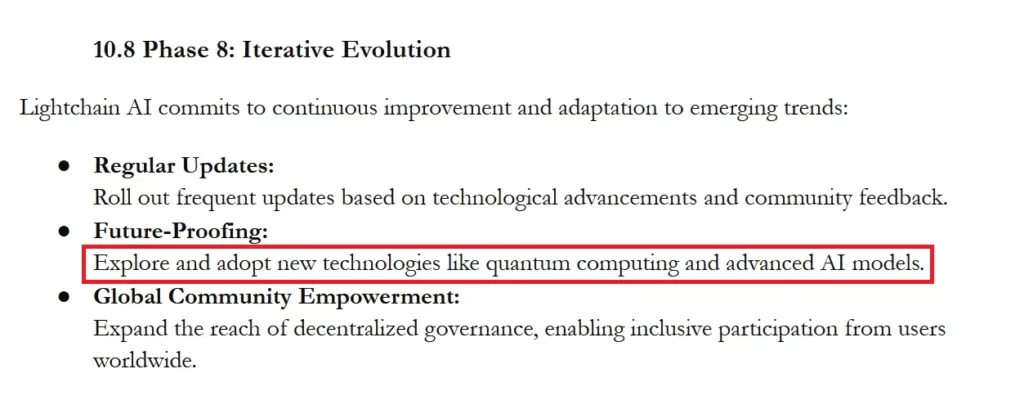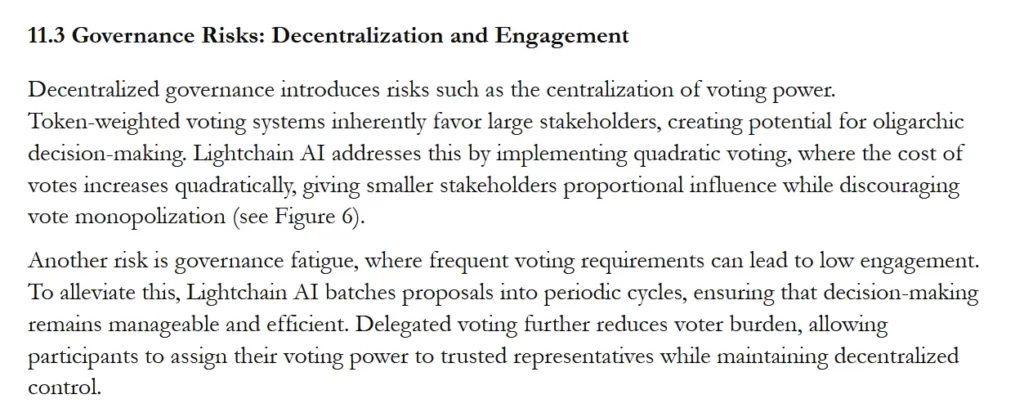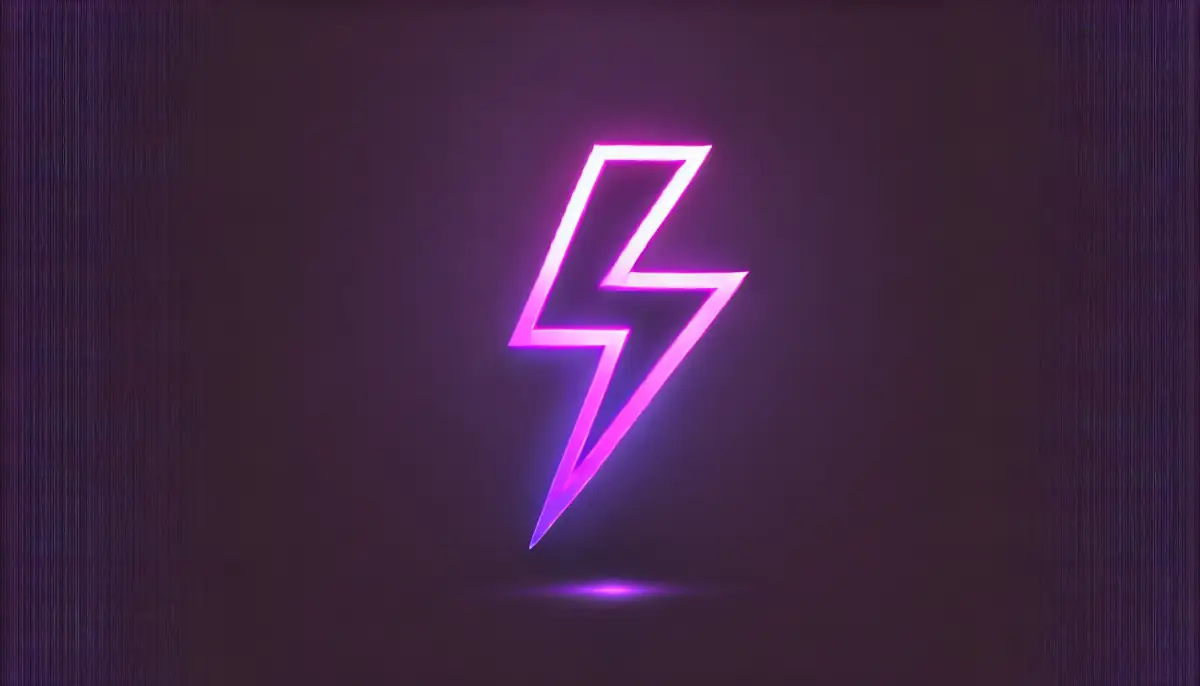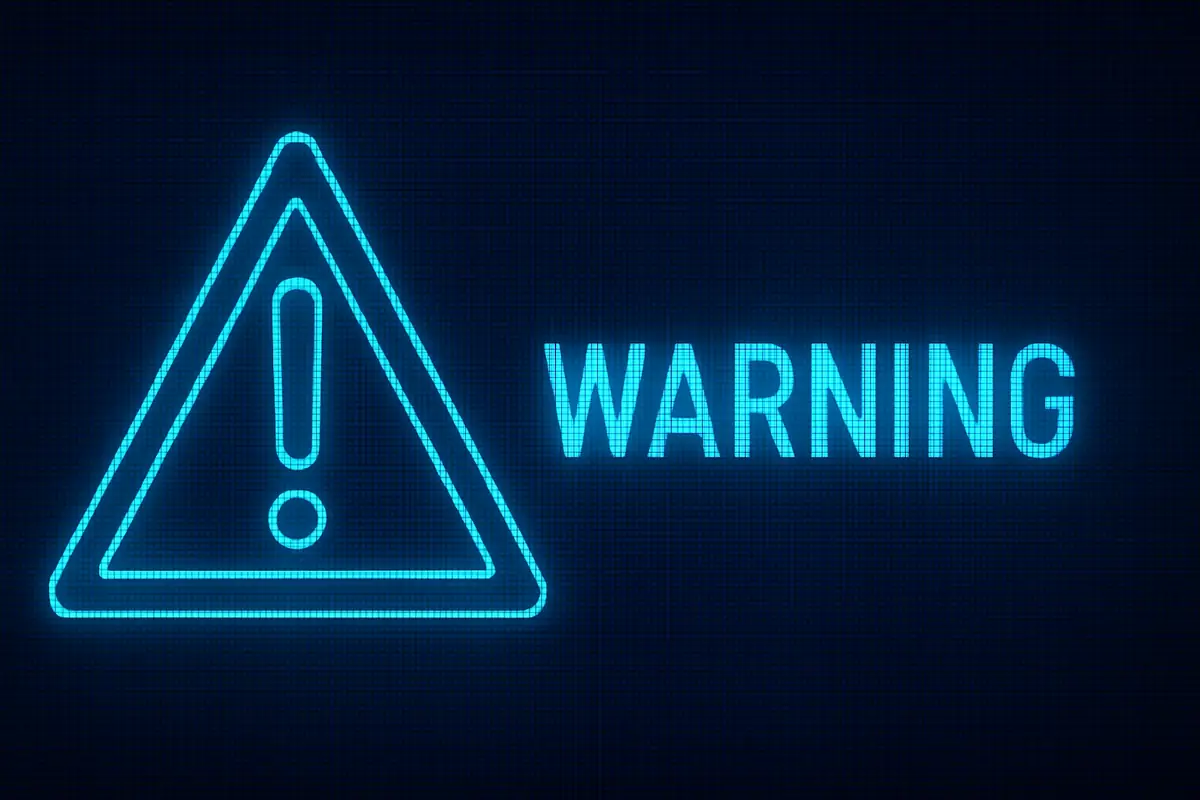Lightchain AI claims to be the future of AI and blockchain integration. The project promises a decentralized system where artificial intelligence computations secure the network, replacing traditional mining and staking. Investors are encouraged to invest early to profit greatly.
However, before you invest your money, you should read our investigation. This project raises far too many red flags to be ignored.
Table of Contents
No Proof of Anything
The Lightchain AI website describes impressive features like the Artificial Intelligence Virtual Machine (AIVM) and the Proof of Intelligence (PoI) consensus mechanism. Supposedly, these innovations will process AI workloads on-chain, making blockchain smarter and more efficient. Yet, there’s no testnet, no demo, and no open-source code.
The whitepaper claims that Lightchain AI can handle 10,000 transactions per second (TPS), but there’s no evidence backing this up. Where are the benchmarks? What blockchain structure allows this? If this is true, it would outperform most established networks – but without proof, it’s just an empty claim.
The project also says it offers a developer portal with APIs, SDKs, and sandbox environments. This would be a key tool for building on Lightchain. The problem? It doesn’t seem to exist. Even the blockchain explorer linked on the site doesn’t work.
AI-Generated Whitepaper
The Lightchain whitepaper is supposed to explain the project’s vision and technical details. And while it’s really long, it reads like something an AI put together in a short time.
A simple AI detection scan gives this document an over 90% probability of being AI-generated. That alone isn’t enough to prove it, but when you read it carefully, the problems become obvious.
The whitepaper is littered with AI-related buzzwords, unnatural phrasing, and a lack of meaningful technical depth. It appears to explain a lot while offering no real substance. We are almost certain that the majority of it was written by AI. But if you’re not convinced, don’t worry – we have way more proof.
Quantum Computing Claims
Some errors in the whitepaper raise more serious doubts about its credibility. For example, in chapter 10.8, we can read:

Just in case you missed it, the quantum computing isn’t here yet. How can the Lightchain explore this technology that doesn’t even exist in a usable form? The funniest part is that this isn’t the first suspicious presale to make such claims – Ozak.AI also claimed that they are exploring this technology.
Missing Figures
In chapter 11.3, the whitepaper references “Figure 6,” yet there is no such figure in the entire document. In fact, there are no other figures at all. This discrepancy raises the question – was this section copied from another source, or was the reference simply fabricated? Either way, it does not inspire confidence.

The AI explains itself!?
Another oddity appears in the technical references section:

This statement feels strangely robotic. References should support claims, not “lend credibility.” It reads like an AI justifying its own writing rather than an actual research paper.
Concerning Audit Findings
Three separate security audits looked into Lightchain AI’s smart contract, and the results weren’t great.
One of the biggest concerns is that the owner has full control over the contract. They can manually enable trading, and tokens won’t be transferable unless they approve it – except for whitelisted addresses. The owner currently holds 60% of the token supply, meaning they control the majority of the ecosystem.
Even more troubling, the audits did not confirm the existence of any promised AI features or technological claims. This means there is still zero proof that Lightchain AI has developed anything beyond a standard token contract.
The Lottery That Might Not Pay
Lightchain AI is advertising a $100,000 giveaway, but unlike its whitepaper, the terms and conditions for the lottery appear well thought out.
To qualify, participants must purchase at least $50 worth of LCAI tokens. They can also boost their chances of winning by completing tasks such as sharing Lightchain’s content on social media – creating artificial hype around the presale.
But what exactly is the prize? Despite the giveaway being called the “Lightchain $100,000 Giveaway”, the actual terms state:
Actual/appraised value of prizes may differ at time of prize award. The specifics of the prize shall be solely determined by the Sponsor. No cash or other prize substitution shall be permitted except for at the Sponsor’s discretion.
Not only does this fail to guarantee a $100K prize, but it also suggests that the reward may not even be cash. Even worse, the terms further state:
The Sponsor has the right, in its sole discretion, to maintain the integrity of the Sweepstakes, to void entries for any reason, including, but not limited to: multiple entries from the same user from different IP addresses; multiple entries from the same computer in excess of that allowed by Sweepstakes rules; or the use of bots, macros, scripts, or other technical means for entering.
Technically, your entry could be disqualified without any specific reason. In fact, the organizers might choose to disqualify everybody.
To be clear, these clauses don’t necessarily mean the team intends to scam participants, but they allow for the possibility. And while we’re on the subject of the team…
Who’s Behind This?
For a project this ambitious, you’d expect to see a team of blockchain and AI experts leading the way. But Lightchain AI’s team is completely anonymous. There are no names, no LinkedIn profiles, and no history of past projects.
If something goes wrong, who is responsible? There is no way to hold anyone accountable for what happens to the funds raised during this presale. The same applies to the $100,000 giveaway. If there’s no team, who makes sure the prize is paid out?
Fake Hype Everywhere
The marketing for Lightchain AI feels artificial. The “reviews” section on the website links to YouTube videos that all claim Lightchain is a “200x gem” or the “next 100x opportunity”. These types of exaggerated claims are common in paid promotions designed to lure in inexperienced investors.
Their CoinMarketCap account has 6,000 followers but only two posts. Their Medium account has just three promotional articles yet claims 260 followers.
Moreover, we already know that the project encourages fake engagement through its lottery. Participants can earn extra entries by posting “bullish” comments, retweeting Lightchain posts, and referring friends.
Questionable Disclaimers
While influencers are bullish that Lightchain will be the next 100x coin, hidden in Lightchain AI’s terms and conditions are some strange contradictions.
The documents say that LCAI tokens have no financial value and that you should not expect to profit from them. The whitepaper clearly states that the token is not meant to be an investment. Even worse, the risks say that LCAI tokens cannot be resold. If this is true, then why would anyone buy them in the first place?

Final Thoughts
Lightchain AI makes some big promises, but there are too many red flags to ignore. No working product, suspicious whitepaper, audits finding critical issues, sketchy giveaway, fake hype, contradictory disclaimers, anonymous teams – if you were considering investing in LCAI, it’s time to reconsider.
Sadly, many crypto presales are scams.
We have a section on our website focused on uncovering red flags in ongoing presales to help potential investors stay safe. If you are interested in investing in presales, you might find it worthwhile to read our other investigations, even when you’re not intending to invest in those particular coins – you’ll start to notice repeating patterns and learn the tricks that suspicious presales use.
You should also always search phrases like “is [presale coin] a scam” and check Reddit forums. If you find content warning about the presale – or no community whatsoever – you should seriously consider whether the presale is legit. When in doubt, you can also contact us – we’ll be happy to investigate the presales that you’re interested in!




